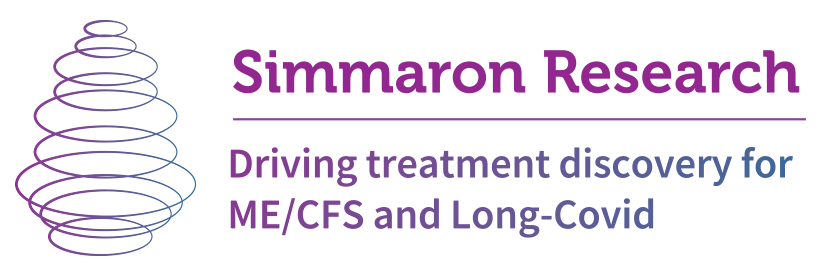Quantum Leap in Viral Detection Could Impact ME/CFS and Fibromyalgia
"I firmly believe that new technology drives science and generally has a much larger impact than individual basic science discoveries." Stephen Elledge
Breakthrough findings in an individual disorder are special, but developing new technology that expands our ability to understand many diseases is something else entirely. It provides the potential to make a difference on a truly vast scale. Those types of breakthroughs are coming with increasing frequency.
- Last month Mark Davis and his huge immune machine determined that exposures to herpesviruses, in particular, vastly altered the states of our immune system.
- Just last week researchers uncovered a lymphatic network in the brain that provides a new window on neuro-immune disorders.
- This week the journal Science published a breakthrough study that has major implications for understanding the role pathogens play in illness.
Each one could shed light on diseases like chronic fatigue syndrome and fibromaylgia
The astonishing thing for us in the ME/CFS community is that two of the three researchers mentioned are also working on ME/CFS.
Pathogen Detection on Steroids
"Now that we can look at all viruses, it's a complete game-changer."
Steven Elledge, a Harvard researcher, is one of them. He pioneered a technique that quickly and thoroughly determines both the antibodies present in the blood and the strength of that response. Antibodies are produced by B-cells in response to pathogens. Because they continue to be produced for decades after an infection antibodies provide a library of past infective events. Until now, though, the search for antibodies has been a plodding, arduous one. Pre-Elledge - researchers and doctors determined whether antibodies to a pathogen are present one antibody at a time. Post-Elledge - they'll be able to look for all known antibodies to all 216 viruses known to infect humans a person - in a single blood sample - for about $25. This isn't just a major leap in efficiency - it's a quantum leap.It doesn’t get much better than creating breakthrough results cheaply. Ian Lipkin called the feat "a technological tour de force and stated "This is a powerful new research tool."
Pre-Elledge - researchers and doctors determined whether antibodies to a pathogen are present one antibody at a time. Post-Elledge - they'll be able to look for all known antibodies to all 216 viruses known to infect humans a person - in a single blood sample - for about $25. This isn't just a major leap in efficiency - it's a quantum leap.It doesn’t get much better than creating breakthrough results cheaply. Ian Lipkin called the feat "a technological tour de force and stated "This is a powerful new research tool."
The Study
Comprehensive serological profiling of human populations using a synthetic human virome George J. Xu, Tomasz Kula, Qikai Xu, Mamie Z. Li, Suzanne D. Vernon, Thumbi Ndung’u, Kiat Ruxrungtham, Jorge Sanchez, Christian Brander, Raymond T. Chung, Kevin C. O’Connor, Bruce Walker, H. Benjamin Larman, and Stephen J. Elledge Science 5 June 2015: aaa0698 [DOI:10.1126/science.aaa0698]The new technology was used to screen for antibody reactions to more than 1,000 strains of 206 viruses in over 500 people across the globe. It found that the average person had been exposed to about ten viruses but that some had been exposed to as many as 25.Not surprisingly, Epstein-Barr virus (EBV) lead the list. Almost 90% of the people tested had been exposed to this ubiquitous virus. Herpesviruses, rhinoviruses, adenoviruses, influenza viruses, respiratory syncytial virus, and enteroviruses were most commonly found viruses. Not surprisingly, the older you get, the more viruses you've been exposed to.The test is not perfect - it misses some very low-level antibodies and may not pick up antibodies in people with depleted immune systems (such as some ME/CFS patients). Antibody responses that decline over time also make it more difficult to find antibodies to very early infections. While the test was completely accurate for people exposed to HIV or hepatitis C, it uncovered evidence of chicken-pox exposure in only about 25-30% of those who'd had it.Elledge said, however, that improvements to the test will enable it to pick up those antibodies.He's not stopping at viral antibodies. He's working on similar tests to assess autoantibodies and antibodies to bacteria and fungi.
The Chronic Fatigue Syndrome (ME/CFS) Connection
“That’s what happens when you invent technology — you can’t imagine what people will do with it. They’re so clever.” Steven Elledge
Autoimmune disorders such as multiple sclerosis - long believed to have a pathogen connection - and cancer were the first diseases mentioned in connection with this technology. The test is so cheap, though - a mere $25 - there's no reason it can't be run in many diseases - including those for which pathogens are not suspected. A virology professor at University of Nottingham, Dr. Will Irving, noted it could be valuable in any disease of "unknown etiology ".
"Indeed in any other disease of unknown aetiology - identifying specific virome reactivity could give a major clue as to a causative agent." Dr. Will Irving
 Irving noted the test may be helpful in determining the cause of primary biliary cirrhosis (PBC), for instance. PBC is a liver disease that produces extreme fatigue, autonomic dysfunction and a symptom profile very much like ME/CFS. It’s one of the fatiguing disorders Dr. Julia Newton has been studying alongside ME/CFS. Irving suggested the new test could help determine if PBC is triggered by viruses.The recent antibody findings in postural tachycardia syndrome - and the infectious triggers commonly found in that disorder - make it another obvious choice. Fibromyalgia - which is often triggered by a virus - is another possibility.As to ME/CFS - Elledge is already studying it. He's one of the new researchers, Suzanne Vernon, a co-author of the new study, enticed into the ME/CFS field as Research Director of the Solve ME/CFS Initiative. Vernon got Elledge to study ME/CFS simply for the cost of shipping samples to him. (ME/CFS patients were in the Science study.)The Solve ME/CFS Initiative announced Elledge was trolling ME/CFS patients blood for antibodies using his new technique last year. ME/CFS is obviously on the Harvard team's minds. Tomasz Kula, a co-author of the study, highlighted chronic fatigue (syndrome) as a prime candidate for this technology.Earlier Elledge talked about the ME/CFS research he's been doing with the Solve ME/CFS Biobank samples
Irving noted the test may be helpful in determining the cause of primary biliary cirrhosis (PBC), for instance. PBC is a liver disease that produces extreme fatigue, autonomic dysfunction and a symptom profile very much like ME/CFS. It’s one of the fatiguing disorders Dr. Julia Newton has been studying alongside ME/CFS. Irving suggested the new test could help determine if PBC is triggered by viruses.The recent antibody findings in postural tachycardia syndrome - and the infectious triggers commonly found in that disorder - make it another obvious choice. Fibromyalgia - which is often triggered by a virus - is another possibility.As to ME/CFS - Elledge is already studying it. He's one of the new researchers, Suzanne Vernon, a co-author of the new study, enticed into the ME/CFS field as Research Director of the Solve ME/CFS Initiative. Vernon got Elledge to study ME/CFS simply for the cost of shipping samples to him. (ME/CFS patients were in the Science study.)The Solve ME/CFS Initiative announced Elledge was trolling ME/CFS patients blood for antibodies using his new technique last year. ME/CFS is obviously on the Harvard team's minds. Tomasz Kula, a co-author of the study, highlighted chronic fatigue (syndrome) as a prime candidate for this technology.Earlier Elledge talked about the ME/CFS research he's been doing with the Solve ME/CFS Biobank samples
"We have developed a technology that reveals all the viruses targeted by the antibodies in a blood sample. We plan to use this technology to examine the blood from people with and without CFS in order to find viruses that are associated with CFS. We hope this study will identify a pathogen as a likely causative agent of the disease in order to focus future study.We also have a related technology that reveals all the targets of autoantibodies in a blood sample. We also plan to apply this technology to the sample blood samples to look for evidence of immune dysfunction in people with CFS.
In a recent Facebook post Suzanne Vernon talked about ME/CFS and the Science study.
"It was so fun to work with this remarkable team on this really cool approach to test for more than 200 viruses (and more than 1,000 virus strains!) in a drop of blood. Blood from ME/CFS patients was included along with blood samples from around the world. George Xu, Steve Elledge and I will continue to dive into the data to see if there are virus patterns unique to ME/CFS."
In response to a query whether the technology would allow research to discern ME/CFS clusters based on enteroviral, herpesvirus, or mixed patterns of infection, Suzanne replied "Exactly".
Stephen Elledge
[embed]https://www.youtube.com/watch?v=Sr_RREyZhRY[/embed]
"I have always wanted to make an impact on the world, to have my life on earth count for something," he said. "By contributing to basic research, I hope my work can accelerate discoveries to improve the lives and health of people." Steven Elledge
Stephen Elledge Ph.D., a geneticist, runs the almost 30-person Elledge Lab at Harvard Medical School. He's co-authored almost 300 papers over the past thirty years. He was drawn to biology and genetics early by the promise the work had to transform biology. "
"The potential for transforming biology was very clear, even stunning. And I decided I wanted to be a part of that." Steven Elledge
In 2012 he (and another ME/CFS researcher, Dr. Michael Houghton) were awarded the Lewis S. Rosenstiel Award for Distinguished Work in Basic Medical Science.
Not Ready for Prime Time - Yet
The test has not been commercialized yet. The study, published in one of the most prestigious science journals in the world, has gotten enormous publicity which will surely help develop the technology into a commercial product.
Cutting Edge Work From Within the ME/CFS Community
From Unutmaz to Elledge to Mark and Ron Davis the ME/CFS community is getting access to top researchers and their cutting-edge technology. It's also in some cases getting access to technology being developed specifically to understand this disorder.Gordon Broderick's modeling efforts at the Institute for Neuro-immune Medicine, Ron Davis's development of ways to analyze the HLA regions of our genome, and the methods Julia Newton developed to analyze muscle cell activity were all developed in-house to better understand ME/CFS.
